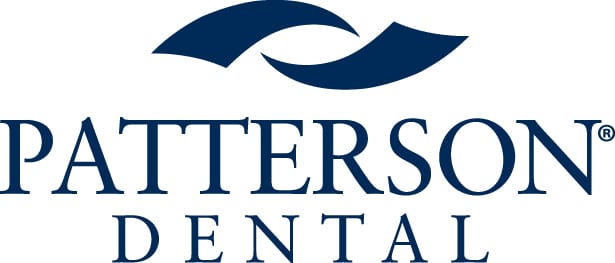By: Savannah Craig
A dental residency program can provide valuable in-the-field experience for recent dental school graduates.
Applying for residency programs is similar to applying to dental school in many ways. But first, you’ll need to choose which kind of residency to pursue.
Most residences fall into two broad categories: GPR and AEGD. What’s the difference between GPR and AGED programs? We’ll explore this question below.
Difference Between GPR vs AEGD Residencies for Dental School Graduates
Dental residencies for general dentists are designated as either:
- General Practice Residency (GPR)
- Advance Education in General Dentistry (AEGD)
GPR Programs
GPR programs focus on the medical management of patients and are typically associated with a hospital. These programs typically allow students to work with medically complex patients as part of a larger medical team.
AEGD Programs
AEGD programs focus on clinical dentistry and often are associated with academic institutions. These programs provide an in-between step — a way to practice dentistry, with guidance, before starting your own practice or joining an already-established practice.
Which Type of Program is Right for You?
Over the years, the differences between GPR and AEGD programs have grown more blurry. Some AEGD programs include aspects of a GPR. Some GPR programs have become more classroom-heavy, like an AEGD.
So, most of the time, it’s best not to rule out either type of program right away. Instead, look into both kinds of programs and consider all their attributes. Try to find programs that best suit your specific needs, regardless of the programs’ designation.
The best way to assess programs is to reach out and ask for specific details from current residents in the program.
This is especially important if you are looking to gain specific experience from a residency.
First things first: Do you want to enter a post-graduate program?
Before searching for post-doctoral residencies, ask yourself this important question: Do I want to enter a residency at all?
Not all dental school graduates want to complete a post-graduate residency program. Instead, they may want to join an established practice or start practicing on their own.
Students who don’t enter a GPR or AEGD program often cite finances as the reason. While these programs typically pay a stipend to help cover living expenses, there is an opportunity cost to continuing your education.
The cost comes in the form of a six-figure income that you could be earning by practicing.
Even with the financial implications, a post-graduate residence program can be a great investment for dental school graduates. It makes dentists more knowledgeable and experienced.
Finding a GPR or AEGD Program
If you are just beginning your research on residency programs and do not know where to start, it can seem overwhelming.
- I started by using the ADEA website to find a complete list of postdoctoral programs.
- I narrowed my search by locations I would be willing to move to for a one-year program.
- I talked to upperclassmen and tried to narrow down a list of programs that offered experiences or opportunities I was most interested in.
- I reached out to program directors via email and expressed my interest in their programs. I listed specifics about their programs that excited me, and I asked to contact their current residents.
igniteDDS has done some of that leg work for you with their Free Residency guide!
It is a great resource to get you thinking about what you want from a program and has compiled information on over 70+ programs to save you from having to reach out!
Accreditation of GPR and AEGD programs
The Commission on Dental Accreditation, or CODA, assesses the quality of both AEGD and GPR programs. A program that has been accredited by CODA has met the commission’s requirements.
Accreditation offers an easy way to make sure the programs you’re considering are qualified to help you progress in your new practice.
See a list of CODA-accredited programs here.
The ADEA PASS Application Process
Once you know where you are applying, it’s time to begin your PASS application.
This application will be similar to your dental school application. You’ll list extracurricular activities you’ve participated in during school. You’ll be asked to list leadership positions you’ve held. You’ll also need to submit a personal statement and letters of recommendation.
Here is some more information about these components:
Personal Statement
It may be tempting to re-use your personal statement from your dental school applications, but I would advise against it. You have grown, changed, and learned a whole new set of skills these past four years!
It is time to show these programs what makes you stand out from other dental students applying.
It’s vital that you highlight why you’ve chosen these programs, but it is also essential to show them why they want you on their team. Writing a good personal statement can take time, so make sure you give yourself plenty of time to write and revise it before your application’s due dates.
At least give yourself a couple of days to complete your statement. Write a rough draft one day and revise it the next day.
Letters of Recommendation
Your application will also need to include letters of recommendation. I tried to find recommenders who knew me in various settings and could help show the programs a well-rounded picture of who I am.
Try to think of people who know you well and would be willing to write you a recommendation. Be sure to give them plenty of notice, so that they are not rushed to submit it before your due dates.
Once your recommendations are submitted, be sure to send a thank-you note to your recommenders and keep them updated throughout your application process!
Interviewing for a Residency Program
The interview process for residency programs is unique depending on if you’ve chosen to apply to MATCH or non-MATCH programs.
Non-MATCH programs work on more of a rolling admissions process. It is not uncommon to interview at a program and be offered a position before you’ve interviewed at your other programs.
It is important to have an idea of which programs are your top picks and think through different scenarios based on how interviews are offered.
Be honest with yourself and the programs you’re interviewing with.
Don’t be afraid to ask for more time on a decision if you need it, but don’t hold on to a position that could be offered to someone else if you don’t plan on accepting it.
NEXT READ: Why You Might Consider a General Dentistry Residency Program
Photo by Andrea Piacquadio


